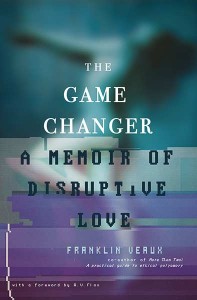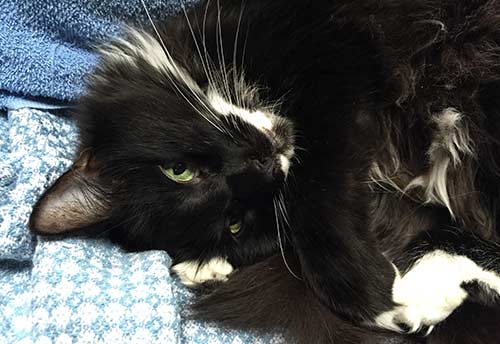It’s probably no surprise to anyone who’s read my writings for any length of time that I’m not a fan of dishonesty in relationships–of any sort, big or small. I have always championed the cause of open, honest communication, especially in romantic relationships. A great deal of human misery and suffering in relationships can, it seems to me, be addressed by the simple but nevertheless radical idea that communication is good.
That doesn’t mean I embrace the idea of Radical Honesty™, at least not as it often shakes out in the real world. I’ve written about that before.
 But I am no fan of intentional dishonesty, even in small ways. The little white lie? It has effects that are farther reaching and more insidious than I think most folks realize.
But I am no fan of intentional dishonesty, even in small ways. The little white lie? It has effects that are farther reaching and more insidious than I think most folks realize.
People who advocate for the little white lie often argue–indeed, seem to believe–that they are being compassionate. The function of the little white lie is to save someone from hurt or embarrassment, the reasoning goes. What is the harm in that? Isn’t it cruel to tell a hurtful truth, if there is no purpose to it?
I have oft observed a very strange thing in romantic relationships, and that is good things our partners say to us tend to bounce off as though our self-conception were made of Teflon, whereas bad things have amazing power to stick. If our partner tells us “I think you’re beautiful; I am totally attracted to you,” it is easy to say “well, he doesn’t really mean it,” and not to internalize it. But a partner saying “I don’t think you look good in that dress” sticks tenaciously, and can haunt us for weeks.
Why is that?
There might be a lot of reasons, but I think one of them is the little white lie.
We live in a society where there are certain things we are “supposed” to say. There are certain lies that we are encouraged to tell–little soothing words that we set up like fences around anything that might potentially be hurtful to hear.
Each of them might, in and of itself, not be that big a deal. Who cares, really, if your partner’s butt looks big in that skirt? You’re not with your partner because of the size of their butt, after all; it doesn’t matter to your relationship.
But here’s the thing.
 When you tell little white lies, however harmless they may seem, you are telling your partner, Don’t believe me. Don’t believe me. I will lie to you. I will tell you what you want to hear. Don’t believe me.
When you tell little white lies, however harmless they may seem, you are telling your partner, Don’t believe me. Don’t believe me. I will lie to you. I will tell you what you want to hear. Don’t believe me.
Is it any wonder, then, that positive stuff bounces off but negative stuff sticks? You are establishing a precedent that communicates to your partner, straight up, do not trust positive things I say. They are empty words. They do not reflect the reality of what I believe. So how, given that, can we really expect our partners to trust it when we give them affirmation?
Little white lies are corrosive. They communicate a very important truth: I will be dishonest to you to save your feelings.
When we make a habit of telling the truth all the time, something wonderful happens. We tell our partners, You can believe me. I will not say what you want to hear; I will say what I actually believe. That means when I tell you positive things, I mean them.
Lies, however innocuous, breed insecurity. They cause your partner to second-guess everything you say: does he really think this is true, or is he just trying to placate me? Is he genuine, or is he just trying to avoid saying something I might not want to hear?
A question I hear often is “When I tell my partner things I like about them, why don’t they believe me?” And the answer, of course, is that we live in a society that cherishes comfort above truth. We are taught from the time we are children that we should tell white lies, and expect others to lie to us, rather than say anything uncomfortable. That leaves us in a tricky position, because we don’t have any way of telling whether the positive words we hear are lies.
Oh, we know we can believe the negative words, because those aren’t little white lies–the purpose of a white lie is to avoid discomfort, and negative things are uncomfortable. We trust the bad stuff implicitly. But the good stuff? We have no reason to trust that! We don’t know if it’s real or if it’s a white lie.
So here’s a thought. If you want your lover to believe you about the good stuff, give them a reason to. Let them know it’s honest. How? By embracing honesty as a core value. What’s the harm in little white lies? They create an environment where we suspect dishonesty from everyone. We can never quite be comfortable that anything positive we hear is the truth; there is always–there must always be–that niggling little doubt.
It is very difficult to develop positive self-esteem when we can not trust the good things people say about us. And yet, taking away our trust to believe the good is exactly what little white lies do.
Don’t do that. Be compassionate in your truth–but be truthful.


